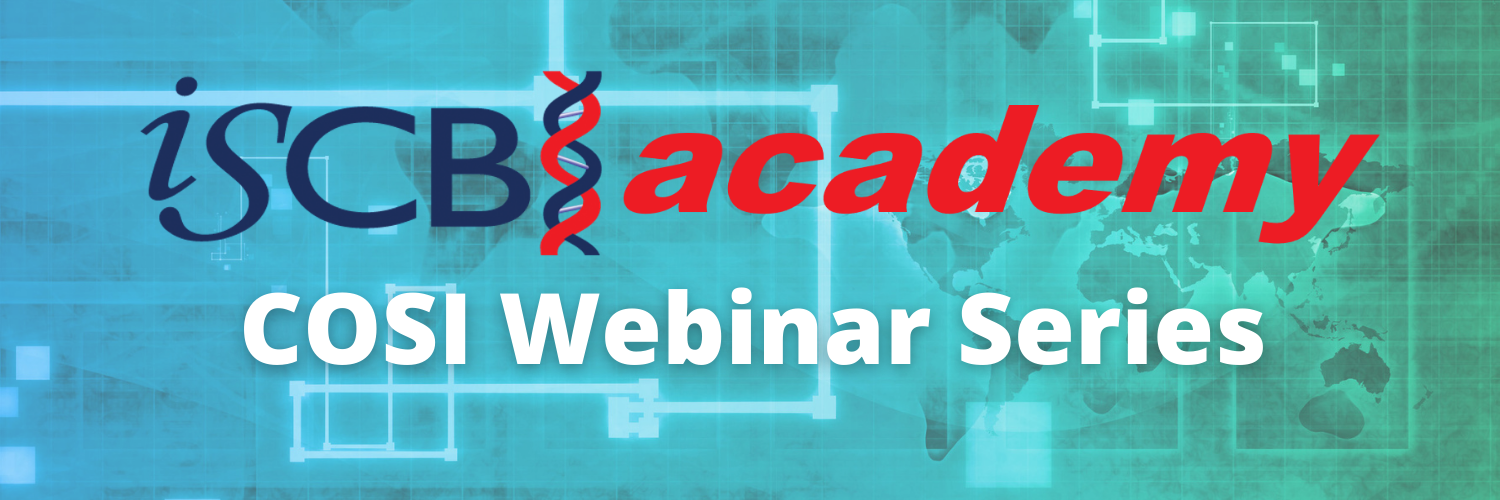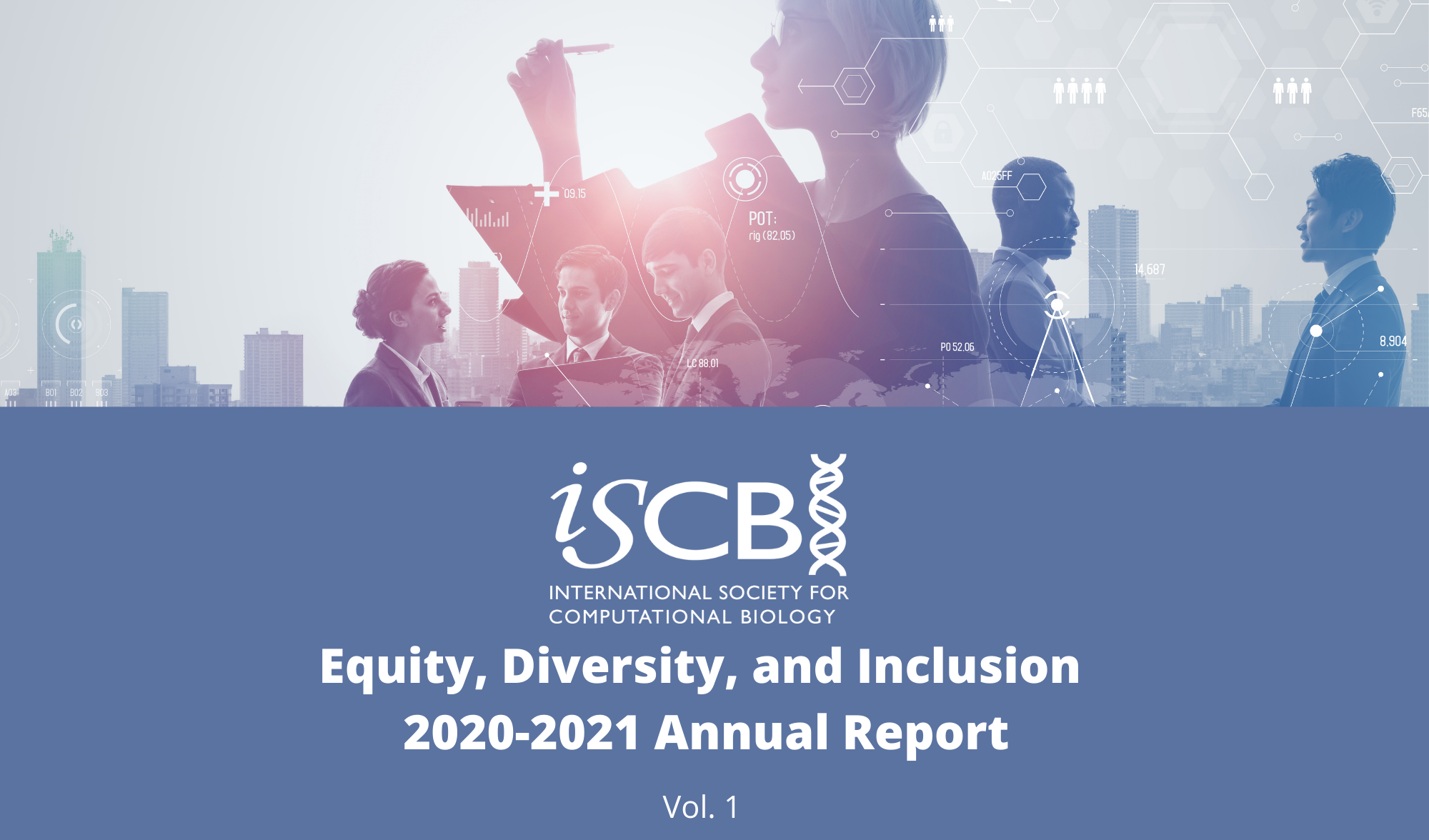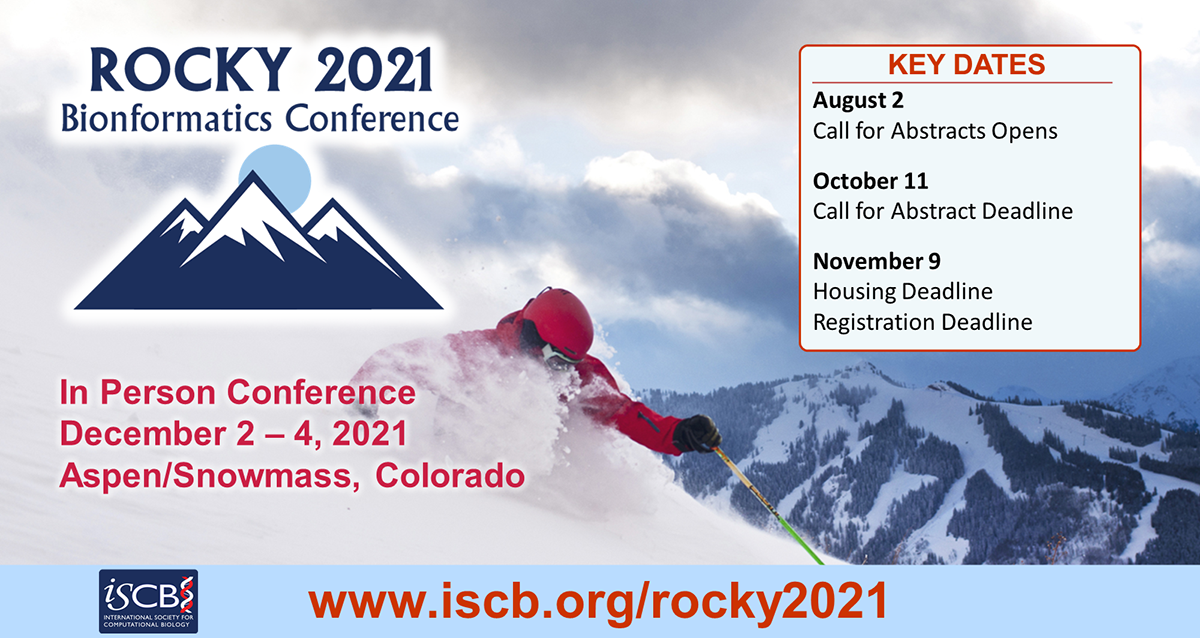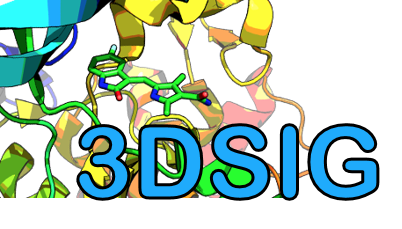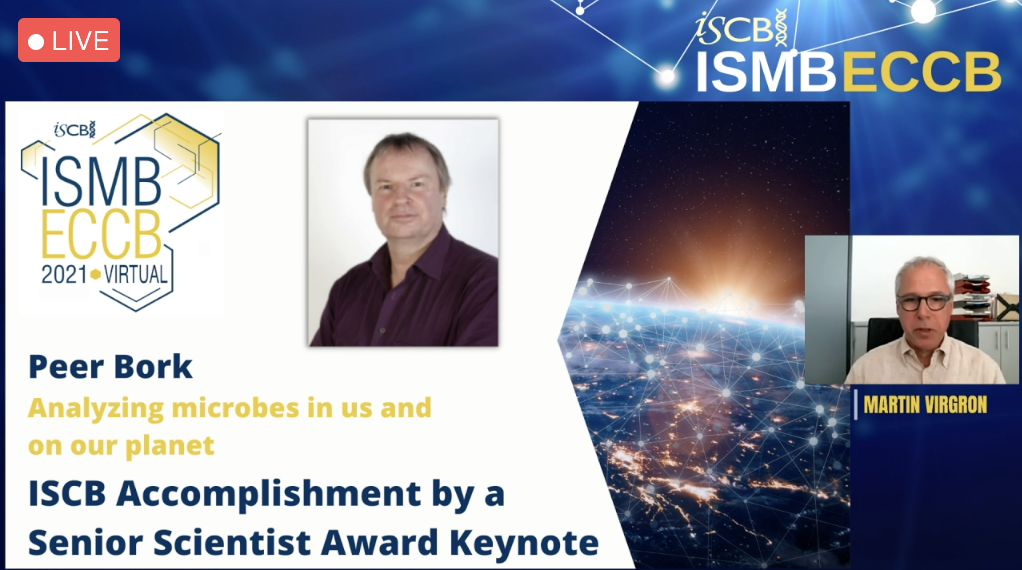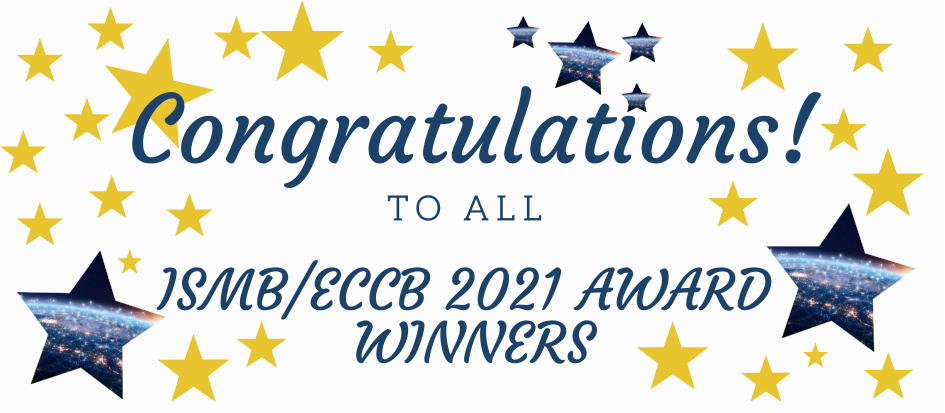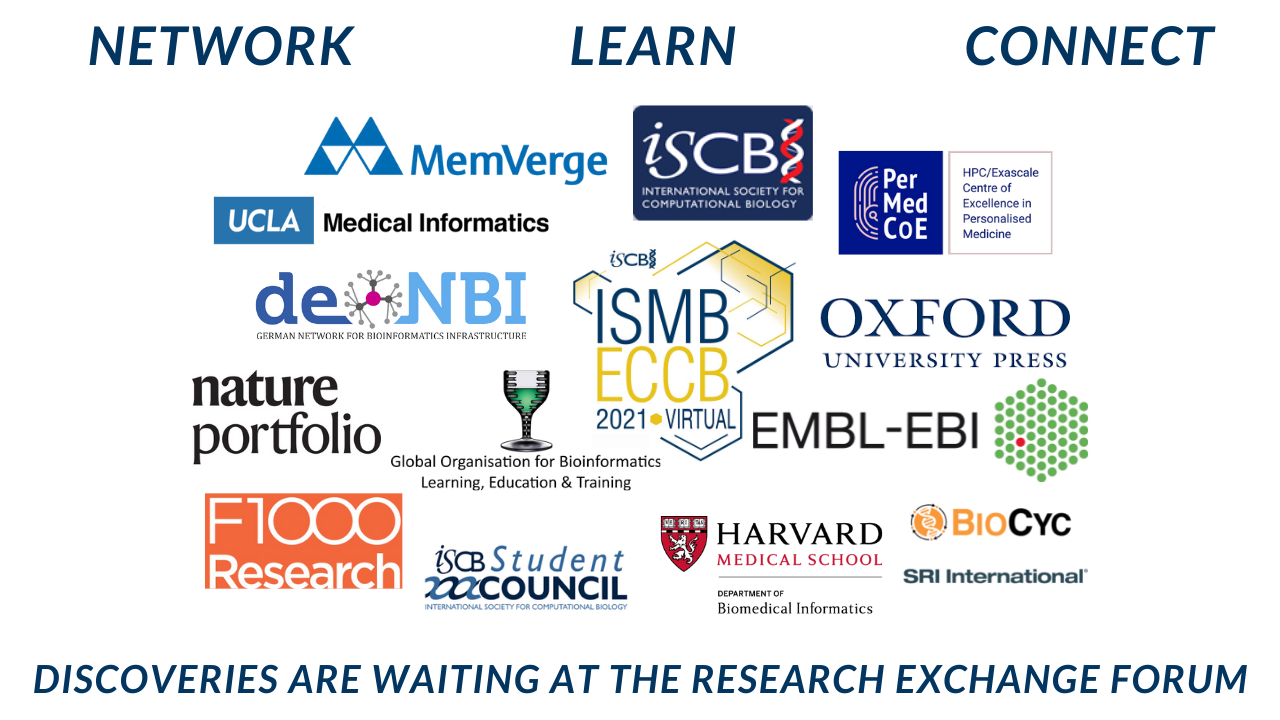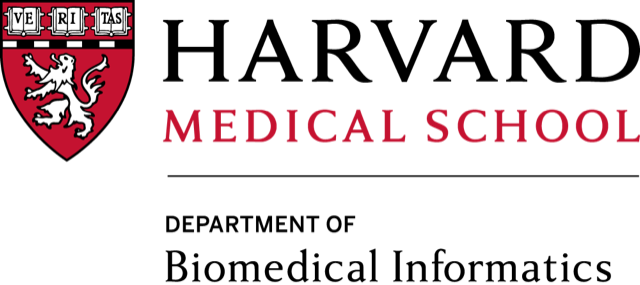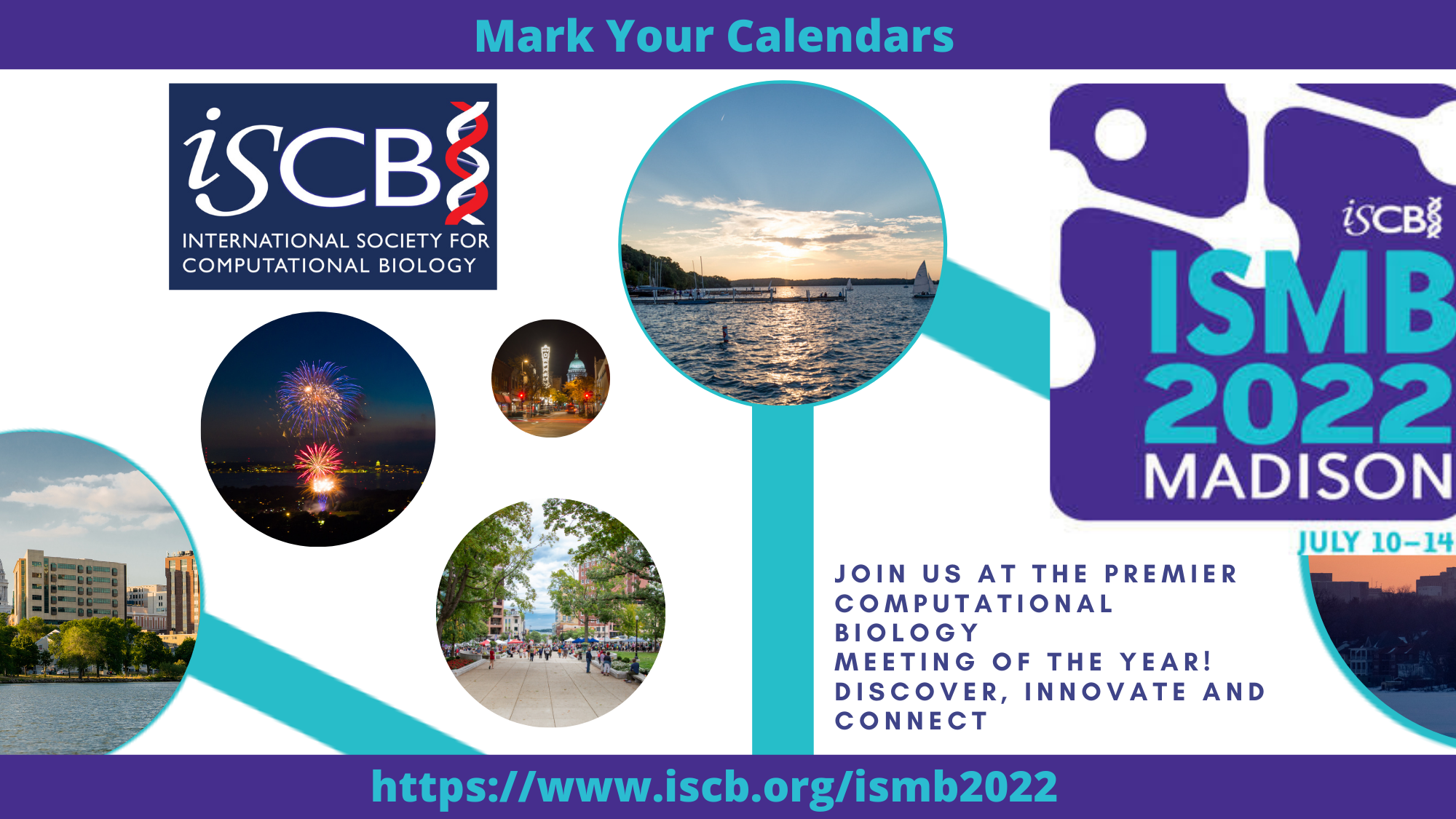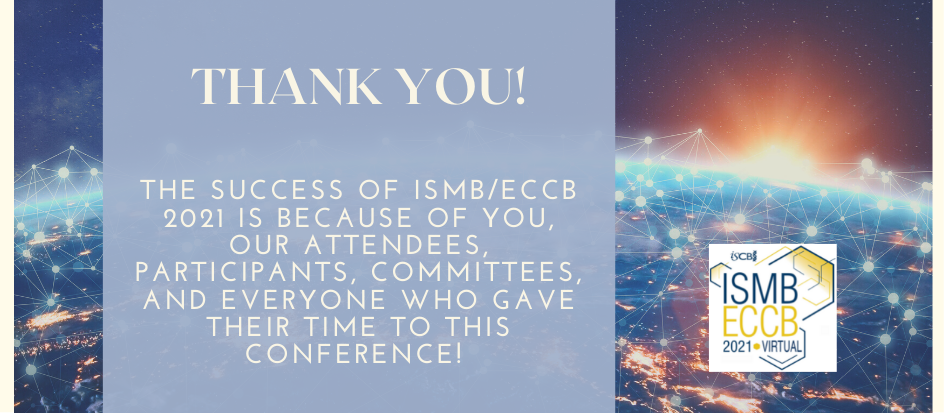ISCB EQUITY DIVERSITY AND INCLUSION
2020-2021 ANNUAL REPORT
Equity, Diversity and Inclusion (EDI) Committee of the International Society for Computational Biology (ISCB)
September 2021
Terry Gaasterland (Chair), University of California San Diego, USA, Lucia Peixoto (Chair) Washington State University, USA, Luis Pedro Coelho, Fudan University, China, Casey Greene, University of Colorado School of Medicine, Denver, USA, Priscila Grynberg, MBRAPA, Brazil, Anne-Christin Hauschild, University of Marburg, Germany, Larry Hunter, University of Colorado, Denver, USA, Shirley Liu, Dana Farber Cancer Institute, USA, Tijana Milenkovic, University of Notre Dame, USA, Gonzalo Parra, EMBL, Germany
|
|
The International Society for Computational Biology is committed to creating a safe, inclusive, and equal society for all our members. These values are enshrined in the ISCB’s Code of Conduct, values and ethics. We acknowledge, respect, and promote the value of having a diverse community. The ISCB’s Equity, Diversity, and Inclusion (EDI) Committee is an ISCB Outreach Committee and serves the ISCB Board of Directors by considering our shared experiences, and promoting a respectful community that honors the humanity of all.
In principle and in practice, ISCB values and seeks diverse and inclusive participation within the field of computational biology and bioinformatics. ISCB promotes involvement and expanded access to leadership opportunities regardless of race, ethnicity, gender, religion, age, sexual orientation, nationality, disability, appearance, geographic location, or professional level. ISCB EDI Committee has prepared this annual diversity report which measures the success of diversity promotion within societal activities, specifically leadership, Intelligent Systems for Molecular Biology (ISMB) conference keynote selection, Society’s Awards and election of ISCB Fellows. The report below details the strategic map for equity, diversity, and inclusion, the tools that have been put in place to support knowledge-building within the area, and where ISCB could improve it’s diversity, equity, and inclusion efforts. ISCB recognizes that to change the impact of diversity, equity, and inclusion within the field, we ourselves as an organization need to ensure we are equitable and diverse.
|
|
SUMMARY OF ISCB EDI RESOURCES INITIATIVES
EDI Strategic Plan (2020-2021)
Components:
- Initiatives to increase social accountability for change in the ISCB society
- Obtaining data and developing measures to assess progress
- Voluntary training: The “ISCB Awareness toolkit”
- Recruitment initiative
- Mentoring
Read ISCB’s EDI Strategic Plan
Read ISCB's awareness toolkit associated with the Strategic Plan
EDI Statements and Policies
EDI Initiatives
1. EDI seminar series
2020-2021: Indigenous Voices in Computational Biology https://www.iscb.org/edi-seminar-series
2. Women’s history month 2021, daily feature of outstanding women in Computational Biology.
|
|
ANALYSIS OF THE DATA and RECOMMENDATIONS
The ISCB Equity, Diversity and Inclusion (EDI) Committee would like to thank the ISCB membership for their participation in the diversity survey of the Society. Your willingness to voluntarily complete this information has given the committee the ability to take a deeper-dive to assess our progress on ensuring equity within the field of Bioinformatics and Computational Biology. The data presented in this report (as of June 30, 2021) can be viewed in detail at the end of the report. Based on the survey the ISCB membership is diverse in terms of ethnic origin (53% of those responding are of non-European descent) but heavily male biased.
However, the data presented in this report may not yet accurately capture diversity within ISCB. Response rate on the survey was 75% on gender and 46% on ethnicity. There’s still a substantial number of members that have either not participated in the survey or have preferred not to declare status. We need higher member participation to obtain more accurate data. The EDI Committee strongly encourages those who have not completed the survey to consider doing so to allow us the ability to make a more accurate analysis. |
|
ISCB LEADERSHIP & KEYNOTE SPEAKER SELECTION
Over the last ten years, ISCB, under the leadership of its presidents and the support of the Executive Committee, Board and membership, has seen significant increases in gender diversity within the leadership of the organization. When ISCB incorporated in 1997, only two women were representatives on the ISCB Board of Directors. Today, 41% of the ISCB Board of Directors are female and 57% of the Executive Committee (elected officers) are female. Furthermore, 50% of the Committee and Advisory Council Chairs are female and the replacement of retiring/expiring Chairs is conscientiously considered to ensure at minimum gender diversity is achieved within the Committee and Advisory Council leadership.
This conscious effort to ensure gender diversity continued in the selection of keynote speakers for the Intelligent Systems for Molecular Biology (ISMB) conference, ISCB’s flagship and most prestigious conference. 61% of ISMB selected keynote speakers were female between 2016 till present. To further support this initiative, guiding principles for speaker selection were put in place to encourage at least 30% female keynote speakers selection for all ISCB official conferences. This specific threshold was selected as it represents 5% more than the known male/female breakdown of the professional ISCB membership. |
|
ISCB AWARDS AND HONORS
Whilst the final selection of awardees shows a good gender balance that reflects that of the membership, all ISCB awards and honors, except the service award, show a gender bias during the selection process that is most prominent at the nomination stage. Bias exists regardless of gender of the nominator. We do not know whether this is also true in terms of ethnicity. Given ISCB membership composition and the gender bias reported data, bias in ethnicity of honors is likely. The ISCB committees responsible for the selection of the awards, however, deserve recognition for their clear conscious efforts to ensure at minimum gender diversity at the final selection level, as you see from the data provided. Furthermore, following our review of the election of Fellows, we would also like to highlight the efforts made by the Fellows Committee to ensure the election of a diverse class of Fellows following the 2015 election. New procedures and processes have been put into place to ensure diversity at all levels.
These achievements do not diminish, however, the need to improve the considerable bias at the nominations level. Steps will be taken to correct this bias. We strongly encourage members to take part in nominating candidates and to use the ISCB awareness toolkit developed by the EDI committee before selecting their candidates. |
| |
EDI COMMITTEE RECOMMENDATIONS FOR the ISCB BOARD OF DIRECTORS
1. A deeper look at the award process is necessary. Some suggestions from the EDI committee to help mitigate bias in the award process:
• Allow for self-nominations in addition to nominations by others.
• Make the whole process after the nomination more transparent on the ISCB website, by publicizing the summary statistics both for the nominations and the awards made.
• Make the award selection committee blind to the initial nomination process to avoid introducing bias based on who the nominator is (or isn’t if we allow self-nominations).
• If introducing the measures above does not improve bias on awards, consider enforcing a ratio that matches the composition of the society (at the professional level) by the selection committees.
2. Include completion of the ISCB awareness toolkit in membership profile survey and offer incentives for members to do so (conference ribbons, banners), especially for members that serve on ISCB committees. The fact that the initial nomination stage is where most of the bias is means our community needs to be educated regarding implicit bias.
3. Our membership is quite diverse in terms of ethnic origin (53% of survey respondents are non-European descent), and many may have limited access to travel to the main conferences based on their location. As meetings go back to in-person, there is an opportunity to leverage our experience over the past year to make sure our meetings are inclusive of our membership. We support ISCB’s goal moving forward to offer as many conferences as financially feasible as hybrid events - in-person and virtual attendance. Conferences that are designed to be hybrid should have live-stream sessions from the conference location, archived recorded sessions that will be accessible to the registered attendance during and after the conference dates, virtual poster presentations and networking opportunities. We support the continued growth of the ISCBacademy program - webinar series. The revision of our fee structure together with virtual options will ensure a more global and inclusive ISCB community
4. In the future, we need to collect demographic info for abstract submitters, talk selections, invited talks, etc. for all ISCB-associated conferences. Our initial assessment supports the existence of bias in recognition in our community. Continuing to collect more and better data will help create better strategies on how to address it.
5. Encourage empirical research into equity, diversity and inclusion in science that utilize rigorous data analysis. Include the following topic on calls for proceedings and abstracts for ISMB.
Topic title: Equity-focused Research
Description: This category is for research that examines issues of equity, representation, diversity, or other elements related to datasets, methods, or the field of computational biology at large.
Consider and encourage such submissions also for the journal Bioinformatics Advances.
September 09, 2021: ISCB Releases Inaugural Equity, Diversity, and Inclusion Report |
|
STATE OF THE SOCIETY - DEMOGRAPHIC DATA
Click here for detailed data |
| |
|
|



